
NOTHING says Christmas like a picture-postcard snow scene, on the cover of COUNTRY LIFE, on a glitter-frosted greetings card or on a festive biscuit tin. The Christmas of our imagination—and, indeed, our dreams—is resolutely white. Yet why is this, when so rarely does the big day bring a blanket of snow?
At first glance, it seems logical to credit Charles Dickens with our yearning for a white Christmas. The theory goes that it was his own bitterly cold (although heartwarmingly happy) childhood Christmases that inspired him to give both The Pickwick Papers and A Christmas Carol a snowcovered backdrop and that, in doing so, he created a lasting feeling that the very best Christmases were white.
Certainly, born in 1812, Dickens experienced six white Christmases in the first nine years of his life. However, dig a little deeper into the snowdrifts of centuries past and it’s clear that the association pre-dates the author. He was by no means the first to pen a snowy festive scene and certainly not the first, nor the last, to experience one.
Between roughly 1550 and 1880, Britain was in the grip of what has become popularly known as the Little Ice Age—a period of intensely cold winters. Forget treetops glistening, frosts were persistently harsh and forbidding. The Thames froze solid with regularity until 1814; that it didn’t freeze so completely in later years is generally acknowledged to be the result
Diese Geschichte stammt aus der December 11-18, 2019-Ausgabe von Country Life UK.
Starten Sie Ihre 7-tägige kostenlose Testversion von Magzter GOLD, um auf Tausende kuratierte Premium-Storys sowie über 8.000 Zeitschriften und Zeitungen zuzugreifen.
Bereits Abonnent ? Anmelden
Diese Geschichte stammt aus der December 11-18, 2019-Ausgabe von Country Life UK.
Starten Sie Ihre 7-tägige kostenlose Testversion von Magzter GOLD, um auf Tausende kuratierte Premium-Storys sowie über 8.000 Zeitschriften und Zeitungen zuzugreifen.
Bereits Abonnent? Anmelden

Kitchen garden cook - Apples
'Sweet and crisp, apples are the epitome of autumn flavour'

The original Mr Rochester
Three classic houses in North Yorkshire have come to the market; the owner of one inspired Charlotte Brontë to write Jane Eyre
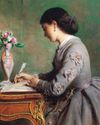
Get it write
Desks, once akin to instruments of torture for scribes, have become cherished repositories of memories and secrets. Matthew Dennison charts their evolution
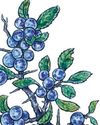
'Sloes hath ben my food'
A possible paint for the Picts and a definite culprit in tea fraud, the cheek-suckingly sour sloe's spiritual home is indisputably in gin, says John Wright
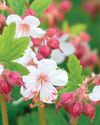
Souvenirs of greatness
FOR many years, some large boxes have been stored and forgotten in the dark recesses of the garage. Unpacked last week, the contents turned out to be pots: some, perhaps, nearing a century old—dense terracotta, of interesting provenance.
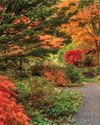
Plants for plants' sake
The garden at Hergest Croft, Herefordshire The home of Edward Banks The Banks family is synonymous with an extraordinary collection of trees and shrubs, many of which are presents from distinguished friends, garnered over two centuries. Be prepared to be amazed, says Charles Quest-Ritson

Capturing the castle
Seventy years after Christian Dior’s last fashion show in Scotland, the brand returned under creative director Maria Grazia Chiuri for a celebratory event honouring local craftsmanship, the beauty of the land and the Auld Alliance, explains Kim Parker

Nature's own cathedral
Our tallest native tree 'most lovely of all', the stately beech creates a shaded environment that few plants can survive. John Lewis-Stempel ventures into the enchanted woods
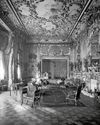
All that money could buy
A new book explores the lost riches of London's grand houses. Its author, Steven Brindle, looks at the residences of plutocrats built by the nouveaux riches of the late-Victorian and Edwardian ages

In with the old
Diamonds are meant to sparkle in candlelight, but many now gather dust in jewellery boxes. To wear them today, we may need to reimagine them, as Hetty Lintell discovers with her grandmother's jewellery